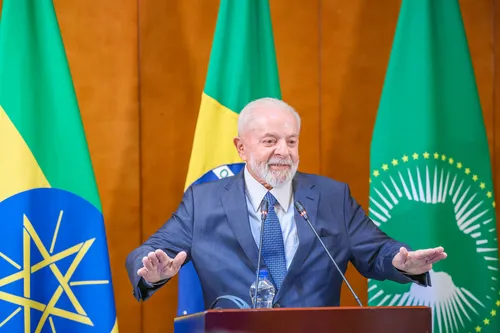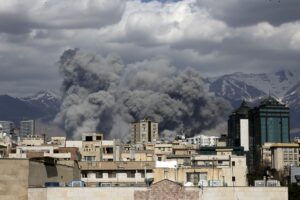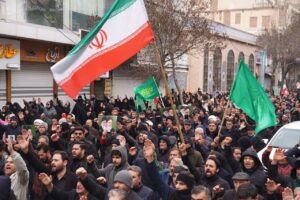
By summoning the Israeli ambassador, the Brazilian government took a “great first step” and demonstrated that it “does not want to be an accomplice in the genocide” underway in the Gaza Strip. This is the assessment of Rula Shadeed, director of the Palestine Institute for Public Diplomacy – PIPD (Palestinian Institute for Public Diplomacy), a Palestinian civil society institution based in Ramallah.
“What Brazil is demonstrating with these actions is that it does not want to be an accomplice in genocide, that what Israel is doing is not acceptable and that it does not want to shelter anyone in its country who represents a regime that is currently committing genocide,” he said. in an interview with Brazil in fact.
Last Sunday (18), in a press conference before leaving Ethiopia, Lula compared the massacre carried out by Israel in the Gaza Strip to the Holocaust carried out by Nazi Germany against the Jews. After the speech, Israel’s Foreign Minister, Israel Katz, announced that Lula would be considered “persona non grata” in the country.
In Shadeed’s assessment, the next step so that Brazil is not considered an accomplice of Israel would be the breaking of any agreement with the country, in particular military agreements. “You must ensure that your state does not have any agreements especially regarding the weapons that are now definitely being used in the genocide against the Palestinian people in Gaza. We hope that the agreements made by the previous president will be cancelled,” he said.
The Palestinian coalition that leads the global Boycott, Divestment and Sanctions (BDS) movement has been calling for a boycott of Israel since October last year for attacks against the civilian population in Gaza. After the start of the war in Gaza, in October 2023, the Chamber of Deputies approved two projects from the Jair Bolsonaro (PL) government that deal with cooperation between Brazil and Israel in the areas of security, combating organized crime and air services.
“We hope that more actions are taken and that we also see the population of Brazil, demanding that the president take more measures and also supporting the president when necessary, when he makes certain decisions. It is very important that the people of Brazil show support for such decisions so that the president has more courage to take further steps,” he said.
Stop fire
The director of the institute believes that the continuation of the bombings is increasingly linked to a personal position of Prime Minister Benjamin Netanyahu and considers that there will be no ceasefire until there is an effective position from the United States and Europe.
“The situation internally is becoming increasingly difficult for him, I think he wants to continue also because he fears persecution and prison when the genocide stops. Therefore, I do not see how Netanyahu alone will make the decision to ceasefire, this needs to be done under pressure from other states. If the US takes a very strong position in terms of economic sanctions, in terms of arms embargoes, that is where we will see Israel stop. Without that, no,” he stated.
Giorgio Romano Schutte, professor of International Relations at UFABC and member of the Observatory of Foreign Policy and International Insertion of Brazil (OPEB) also considers that, without a more drastic attitude from other countries, there will be no ceasefire and assesses that Lula’s position contributes in this sense.
“To isolate Israel, the West needs to stop. For a leader like Lula to speak in a forceful way, at a time when this catastrophe in Rafah needs to be avoided, is to say to the sectors allied with Israel, that enough is enough. Lula contributed to expanding this front that isolates Netanyahu and internally increasing the pressure to remove Netanyahu and achieve a ceasefire. What is needed today is a ceasefire.”
Regarding Israel’s reaction to declare Lula a “persona non grata” and summon the Brazilian ambassador, Romano classifies it as a secondary concern. “Israel-Brazil relations are, at this moment, in the face of this genocide, a second-rate concern.”
The researcher points out that a break in diplomatic relations between Brazil and Israel is not on the horizon at the moment, but rather a suspension of these relations with the summoning of the respective ambassadors. “The embassies will continue to operate even without an ambassador, it is a suspension, a pause, then relations will recover. The important thing now is to see how this helps to diplomatically isolate Israel, increase pressure to reach a ceasefire, Lula has put himself on the front line,” he said.
He points out that there is a precedent for this situation when, in 2015, the Israeli embassy in Brazil became vacant, when President Dilma Rousseff refused Netanyahu’s nomination for the post. “When Dilma falls, of course Netanyahu also appoints the ambassador who supported Bolsonaro,” she recalls.
Editing: Lucas Estanislau
Source: www.brasildefato.com.br

